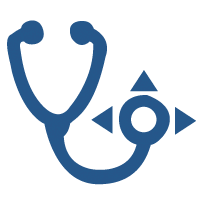Back
Focus Session
Considerations in Referring to Mutual Aid Groups: Legal, Ethical, Clinical & Pragmatic
Sunday, April 3, 2022
11:00 AM – 12:00 PM ET
Location: Diplomat Ballroom 1&2, Second Floor
There is a significant body of research demonstrating that informed patient/client choice of therapeutic modality and/or style allows for better outcomes than assignment by professionals. Because patient/client temperament, worldview, thinking style, views on authority and spirituality, and, especially, his or her attitude about MAT/OAT (if germane) are important elements of their preferences, assessment of the potential "best fit" for a mutual aid referral or referrals requires a thoughtful assessment rather than a rote or coerced assignment, when feasible. There are also important legal [Constitutional], ethical [beneficence/autonomy], clinical and pragmatic issues which also bear consideration when discussing options with potential participants. As William Haring, MD, DFASAM, President of ASAM, said in a recent speech to an International Physicians in AA Convention: "...knowledge of what is available in the way of mutual aid resources in the community is an ethical and clinical imperative." As an example, a current study at Harvard Medical School on AUD, funded by NIAAA, has so far recruited approximately 350 subjects with AUD starting a new recovery attempt. Subjects are self-selected volunteers. About 15% intend to attend SMART Recovery meetings only, 20% AA meetings only, 25% both and 40% neither. Salient characteristics of the programs of Alcoholics Anonymous, Dharma Recovery, Refuge Recovery, NA, LifeRing Recovery, SMART Recovery [Self-Management Addiction Recovery Training], Women for Sobriety, Celebrate Recovery and Moderation Management will be described and compared. Accessibility of many of these programs is now almost universal via the Web. For example, there are about 700 "local" SMART Recovery meetings online and 69 National and International meetings including foreign language meetings, meetings for vets [male & female], first responders, women, youths, LGBTQ, Family & Friends, meditation, etc. Inclusion of some Australian and UK web-based meetings provides almost 24/7 availability.
Learning Objectives:
Learners will be able to:
- be aware of the need to individualize client referrals to mutual aid groups
- understand the various considerations that should enter into a clients decisions bout whether to utilize mutual mutual aid group(s) and which ones would be most appropriate
- describe the salient characteristics of the variouswidely-available mutual aid groups for SUDs.

Joseph Gerstein, MD, FACP
Clincal Asst. Prof. of Med. (Retired)
Harvard medical School, Florida


